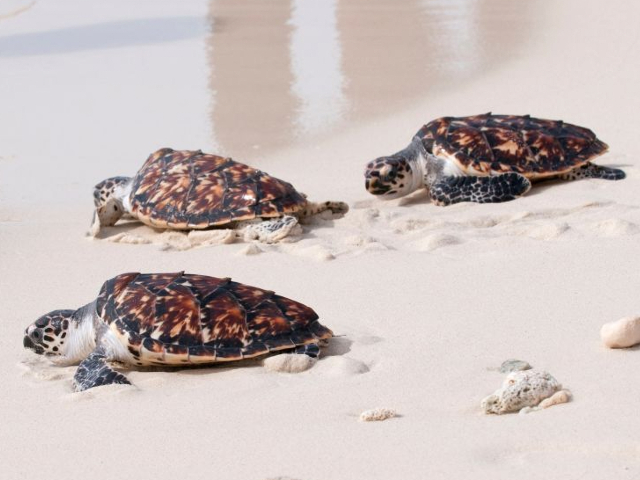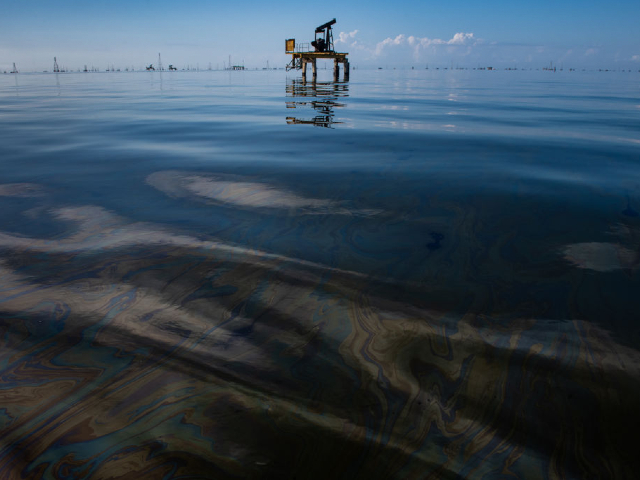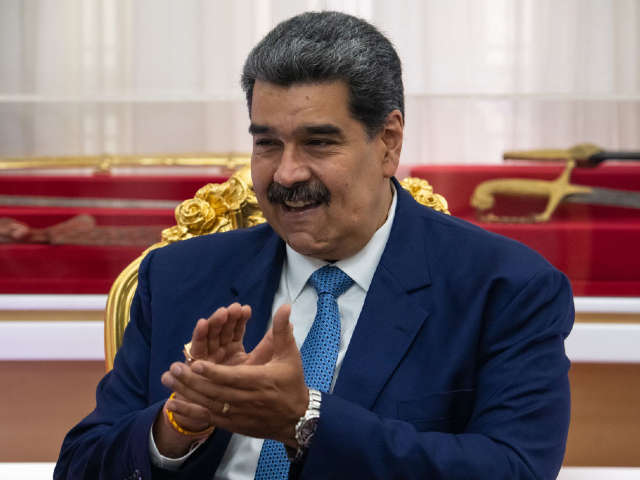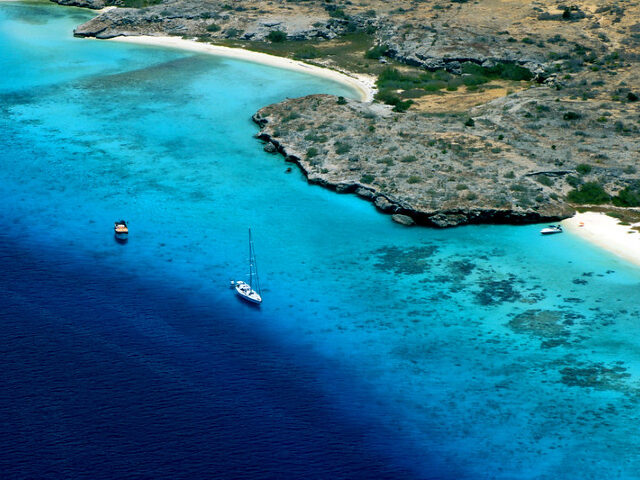Venezuela’s socialist dictator Nicolás Maduro announced his intentions last week to build a series of large-scale luxury tourism complexes on La Tortuga, one of the nation’s uninhabited islands.
One week after the announcement on July 21, local experts have sounded the alarm, as Maduro’s proposal would pose serious risks to the island’s fragile ecosystem. They have largely not met with any support from the international environmentalist community.
Maduro’s wild ten-month plan, titled the “Master Plan for the Development of La Tortuga Island,” seeks to attract foreign investment to build ten resort hotels, an international airport, and a dock on the island. Maduro’s plans for La Tortuga are part of the socialist dictator’s brand new law that allows for the designation of specific areas of Venezuela as “special economic zones” in a manner similar to what China has done in some of its largest cities, like Shanghai, Tianjin, and Shenzhen. According to Maduro, the “Special Economic Zones” will attract foreign investment to the rogue socialist nation.
“Attention, investors from Asia, from Europe. Europe, don’t stay out for ideological reasons, don’t continue letting yourself be dragged along for ideological reasons. Come to Venezuela, Europeans. Investors from Latin America, the Caribbean, Africa. Come on,” Maduro said at the signing of his Special Economic Zones law on July 20.
La Tortuga is part of Venezuela’s Federal Dependencies, a group of offshore Caribbean islands directly managed by Maduro. It is Venezuela’s second-largest island, with an area of 156 square kilometers.
While international environmentalist organizations have remained silent over the matter, local experts have voiced their concerns over the environmental consequences the development plan would have on the island.
“The only way to install a port there is [with] a major intervention into the environmental conditions of the island. This would distort the characteristics of the island and generate very important pressures in terms of waste generation,” Joaquín Benítez, Director of Environmental Sustainability of the Andrés Bello Catholic University (UCAB) explained during an interview with the Venezuelan news website Efecto Cocuyo published on Sunday. “A project of this nature aims to turn the island into something it is not and will end up making it lose its tourist attraction.”

Hawksbill turtle (Eretmochelys imbricata) on the beach. Cayo dos mosquises. Archipelago Los Roques National Park, Venezuela. Hawksbill turtles are among the endangered species whose habitat will be compromised in the development of La Tortuga. (Photo by: Massimo Piacentino/REDA&CO/Universal Images Group via Getty Images)
In an interview given to Venezuela’s Union Radio on July 29, Benítez said that the project “would take it [the island] far away from its vocation as a space for environmental protection and they would turn it into a place with sand and salt water, nothing more.”
Turning the uninhabited island into a high-class luxury destination for foreigners would put four endangered species of turtle that use the island as its nesting place at risk: the Hawksbill, Leatherback, green sea turtle, and Loggerhead.
The island is also a resting place for species of migratory birds that would see their migratory cycles affected. La Tortuga is also home to bird species such as the brown pelican and the native brown-throated parakeet.
Despite the fragility of La Tortuga’s ecosystem, the socialist regime has not granted it any kind of legal protection that designates La Tortuga as either a national park or as a biosphere reserve.
The Venezuelan regime maintains an “Ecosocialism” Ministry that has not objected to the plans. The Ministry turns a blind eye to the socialist regime’s destruction of Venezuela’s environment through constant and unaddressed oil spills and the continued destruction of Venezuela’s rainforests by the Orinoco Mining Arc, another of Maduro’s creations.

Oil floats on the water around a dilapidated Petroleos de Venezuela SA (PDVSA) oil pump in Lake Maracaibo in Cabimas, Venezuela, on Friday, Dec. 3, 2021. Photographer: Gaby Oraa/Bloomberg
Venezuela’s Political Ecology Observatory has expressed concerns over the proposed plans for La Tortuga, fearing that such a plan would end up in an environmental disaster of similar propositions to Maduro’s Mining Arc.
Luis Silva, a member of the Venezuelan opposition, stated that Maduro’s plans with La Tortuga are a “rehearsal” of his regime applying Special Economic Zones akin to that of China and that the intention is to “fully control the population at the political level, but with a certain level of liberalization of the economy.”
It is not the first time that the socialist regime of Venezuela has tried to turn the nation’s Federal Dependencies into tourist attractions. In 2014, the Maduro regime announced similar intentions for La Tortuga and for La Orchilla, another of Venezuela’s islands, which currently houses a military base.
If Maduro succeeds in attaining the foreign investment that he seeks for La Tortuga, it would hypothetically leave Venezuela with a high-class tourist destination that benefits not the nation’s citizens, but the ruling socialist regime.

Nicolas Maduro, Venezuela’s president, applauds during a news conference at Miraflores Palace in Caracas, Venezuela, on Monday, July 11, 2022. Photographer: Gaby Oraa/Bloomberg
With an estimated 94.5 percent of Venezuelans living below the poverty line, they cannot even begin to dream of accessing these proposed tourist destinations, an experience similar to that of other authoritarian regimes, such as Cuba and its famed Varadero beach.
Venezuelans already have a similar experience in Isla Margarita, an erstwhile beautiful tourist attraction that has, in recent times, become a hotspot for Russian tourists until the consequences of the Russian invasion to Ukraine forced them to limit travel.
While Russian tourists reaped and enjoyed Isla Margarita’s tourist destinations, the locals are not spared from the experience of living in Venezuela, and must suffer through constant blackouts and severe running water shortages, the latter of which are now pushing the island further into collapse.
Christian K. Caruzo is a Venezuelan writer and documents life under socialism. You can follow him on Twitter here.

COMMENTS
Please let us know if you're having issues with commenting.